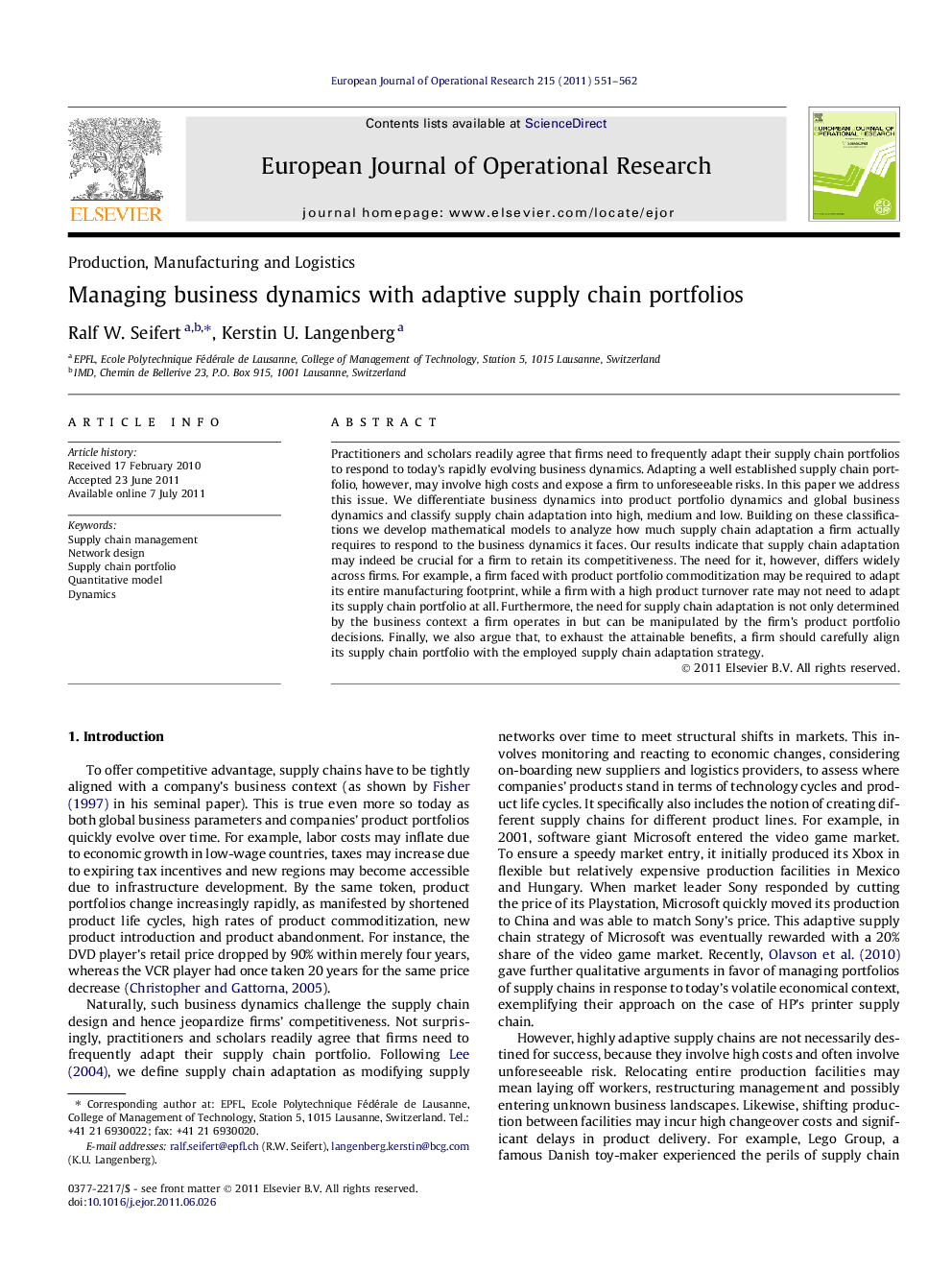| Article ID | Journal | Published Year | Pages | File Type |
|---|---|---|---|---|
| 480271 | European Journal of Operational Research | 2011 | 12 Pages |
Practitioners and scholars readily agree that firms need to frequently adapt their supply chain portfolios to respond to today’s rapidly evolving business dynamics. Adapting a well established supply chain portfolio, however, may involve high costs and expose a firm to unforeseeable risks. In this paper we address this issue. We differentiate business dynamics into product portfolio dynamics and global business dynamics and classify supply chain adaptation into high, medium and low. Building on these classifications we develop mathematical models to analyze how much supply chain adaptation a firm actually requires to respond to the business dynamics it faces. Our results indicate that supply chain adaptation may indeed be crucial for a firm to retain its competitiveness. The need for it, however, differs widely across firms. For example, a firm faced with product portfolio commoditization may be required to adapt its entire manufacturing footprint, while a firm with a high product turnover rate may not need to adapt its supply chain portfolio at all. Furthermore, the need for supply chain adaptation is not only determined by the business context a firm operates in but can be manipulated by the firm’s product portfolio decisions. Finally, we also argue that, to exhaust the attainable benefits, a firm should carefully align its supply chain portfolio with the employed supply chain adaptation strategy.
► We study how to keep supply chain alignment in response to dynamic business changes. ► Our quantitative model considers portfolios of both products and of supply chains. ► We link together qualitative and quantitative work, and provide managerial insights. ► Different levels of SC adaptation may be required depending on the business dynamics. ► Product portfolio decisions may be used to hinder the required level of adaptation.
